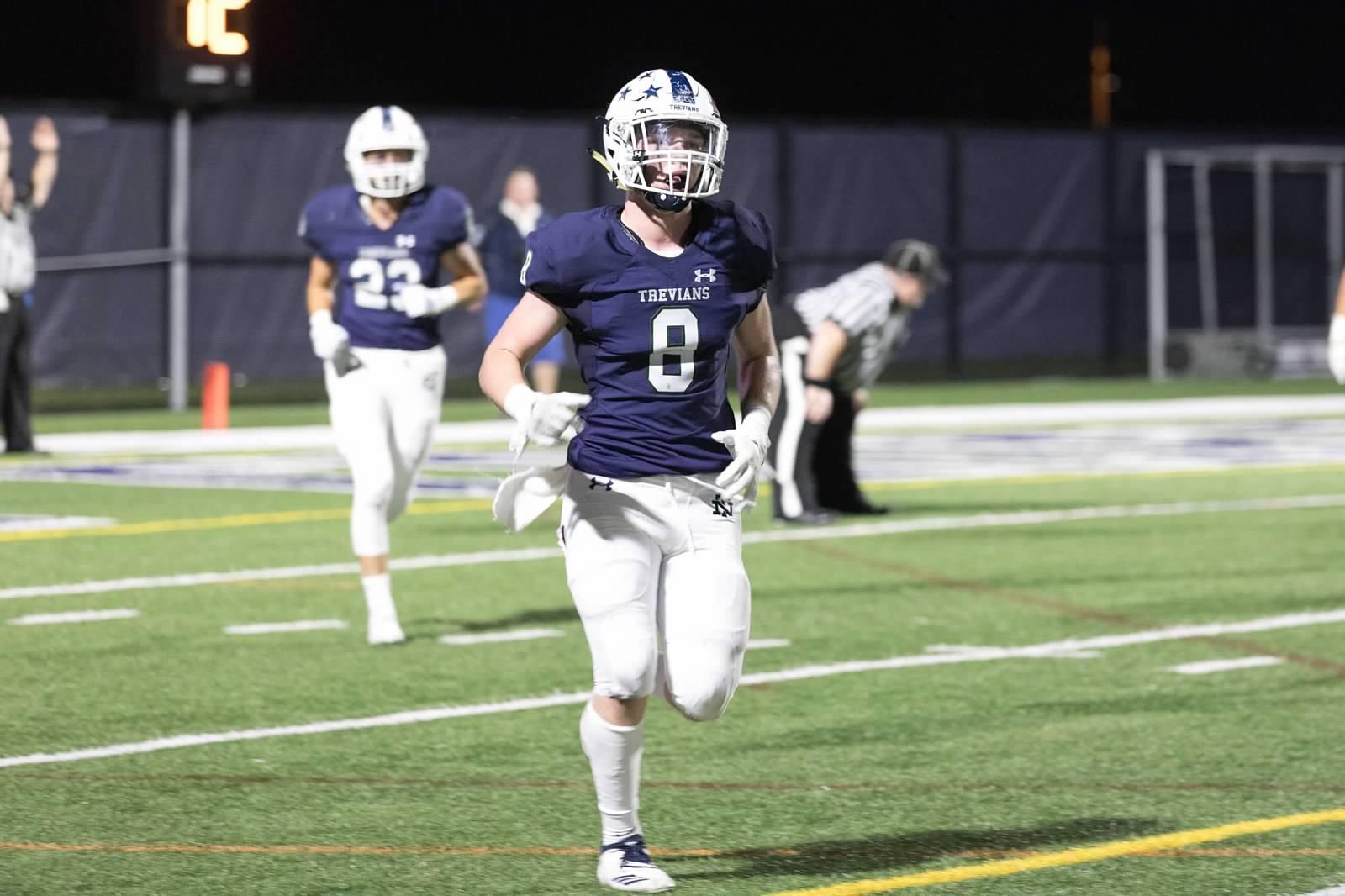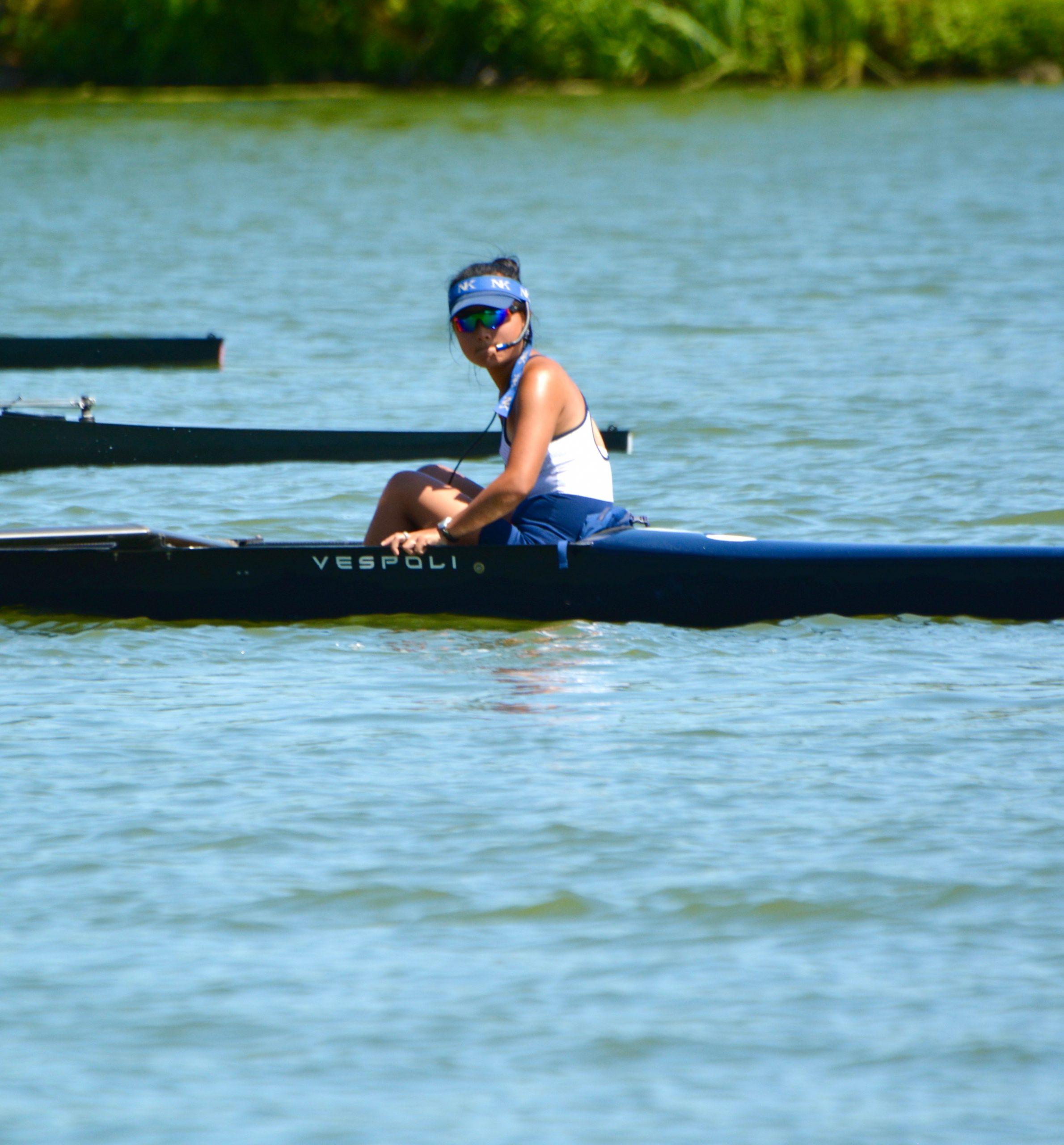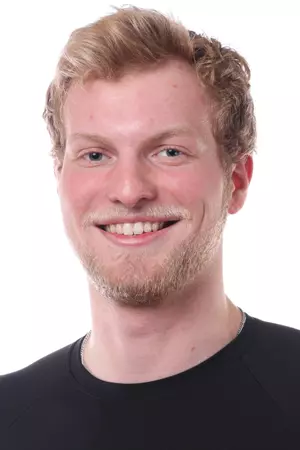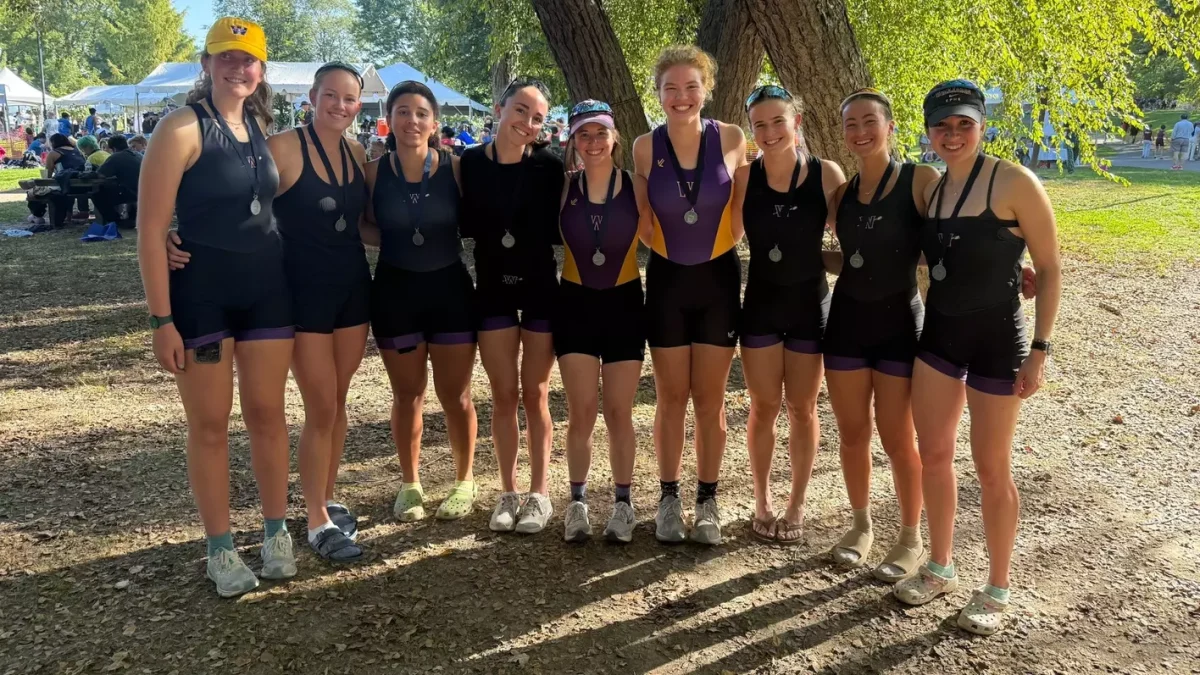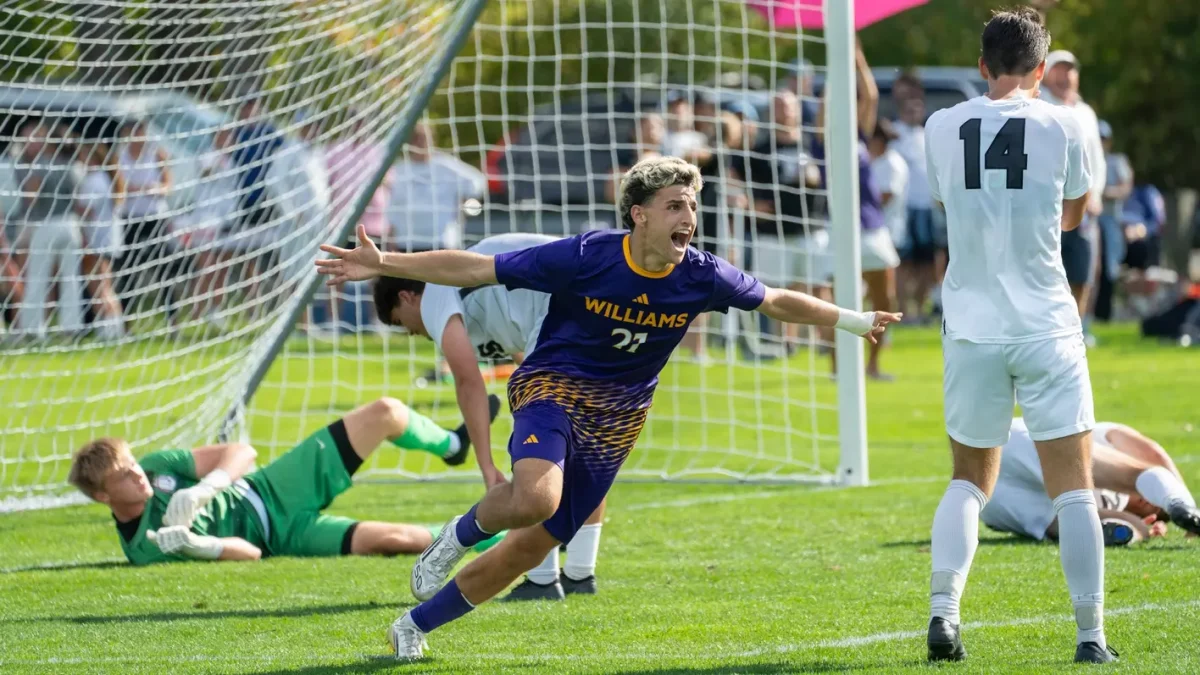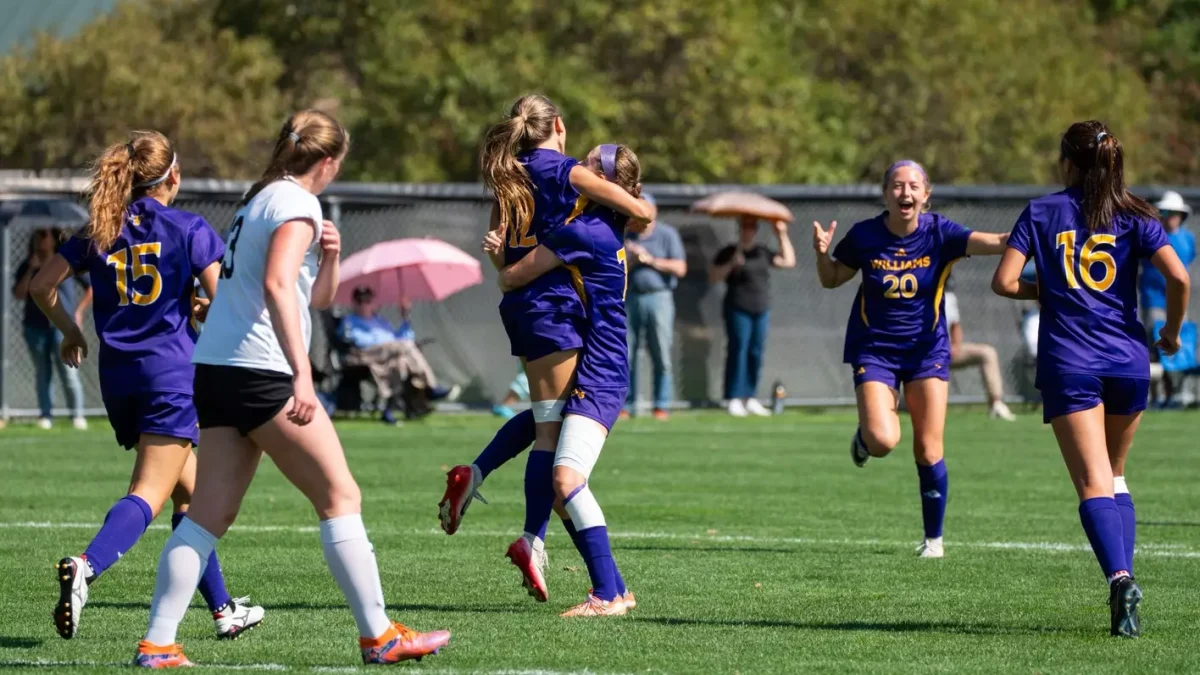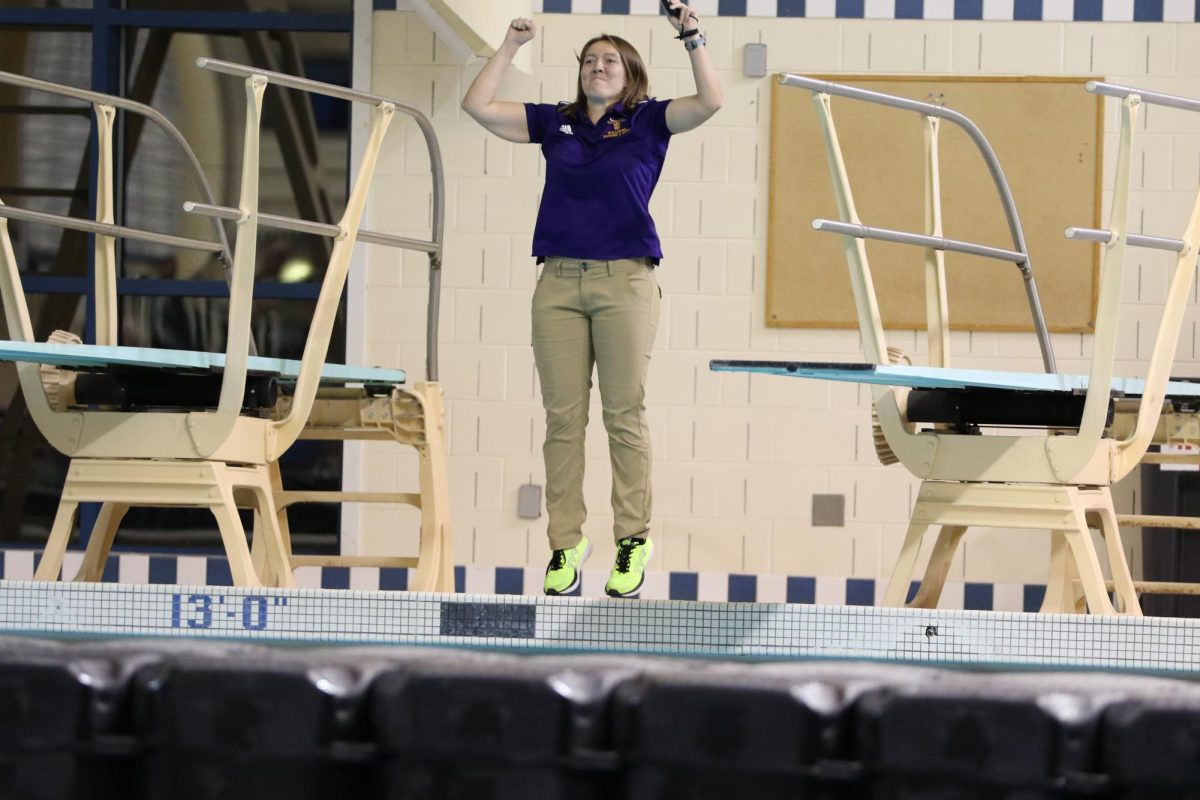Back in the summer of 2019, when James Hemmer ’24 first heard from football head coach Mark Raymond, Hemmer was deciding whether he wanted to play lacrosse or football in college. Fast forward one year, and he was faced with a very different decision: Whether to enroll as a student and not compete in the fall, or to take a year off and not enroll at all.
For new Ephs like Hemmer, the decision was just one of many tough choices they had to make ahead of this unusual semester.
On July 10, the NESCAC released a statement on fall sports that announced the cancellation of all conference competitions for fall 2020 due to public health concerns caused by the COVID-19 pandemic. The statement came shortly after President of the College Maud S. Mandel announced the decision to resume in-person classes for the fall.
Of the entire Class of 2024, 15.4 percent chose to take a gap year, according to data released earlier by the College; meanwhile, 15.6 percent of all varsity athletes across class years decided to take a year off.
At the intersection of these two communities are the first-year student-athletes, who faced a particularly difficult decision as they began their college athletics career.
While the College continues to offer team practices and activities, community public health restrictions mean that, for incoming athletes, their first season will feel nothing like what they experienced or anticipated — there will be no shared equipment, indoor training spaces or full-team practices. They will have to completely reimagine their athletic involvement at the College and the role of sport in their lives.
For Henry Johnstone ’24, Nordic skiing is a big part of his life. Prior to enrolling at the College remotely, Johnstone took a gap year to train and compete in the sport of Nordic combined, which involves both ski jumping and cross-country skiing.
“I was eager to see where a full year of devotion could take me before coming to Williams as a cross-country skier,” he wrote in an email to the Record.
As the College reopens, however, the uncertainty about winter sports remains. During a virtual Athletics Department town hall, Athletic Director Lisa Melendy said no decision has been made on whether winter sports teams will be able to travel and compete.
While nordic skiing competitions are outdoors and can be completed individually, Johnstone was concerned about the interstate travel required and the logistics surrounding hotels, transportation and exposure to athletes from other schools. “[They] make for a lot of doubt in my mind as to whether the race season I had hoped for could happen,” he wrote.
The uncertainty and changes, along with stricter limitations on campus life, factored into Johnstone’s decision to enroll remotely. “Competing during the winter is very important to me and because the Nordic combined community is so much smaller and more manageable, I feel that my best chance for a season as close to ‘normal’ as possible [lies] with Nordic combined,” he wrote.
Apart from the change in lifestyle, uncertainties surrounding national competitions also became a decisive factor for many. Johnstone noted that, like him, many skiers have decided to take the semester off or go remote, and that only two men on the Nordic team will be on-campus this fall. According to Hemmer, football also saw many of its upperclassmen players decide to take a leave this fall to preserve their eligibility for future seasons.
For Hemmer, playing two sports in college was an important factor in his final college decision, but it wasn’t the only factor.
“Obviously I love football and lacrosse, and I’m very excited to play here,” he said. “But one of the biggest reasons why I chose Williams over other schools was the academics. So I figured, even if we don’t have a football season, I’m still learning — going to class and getting to know these awesome professors. That was a big reason.”
Despite the lack of a football season, the close relationship that often develops between players and coaches did not change. “I love the coaches here,” Hemmer said., “That was another big reason why I really wanted to come here. Coach Rayman and coach Blu [recruiting coordinator and offensive line coach Tom Blumennauer] were the two coaches that recruited me really, and they were super nice.”
The coaches were not only involved in athletics; according to Hemmer, they assisted their newest team members in adjusting campus life as well by constantly reaching out through texts and making themselves available to the freshmen.
“Throughout this whole process with freshmen moving in, [Raymond] always said, ‘If you need anything, like, anything at all, let me know and I’ll help you out,’” Hemmer said. “And I actually contacted him about my rooming situation because it got a little confusing, and he helped me out. I’m very appreciative of that.”
The holistic experience that the College offered is also part of the reason why Sunny Hu ’24, a coxswain on women’s crew, chose to enroll. After weighing all her offers, she decided that the balance of sports, school and social activities at a Div. III institution appealed to her more than that of Div. I schools, where athletic commitments are more “extreme.”
Like Hemmer, Hu chose to study on campus in-person. According to her, the decision to enroll was “an easy one.”
“I wasn’t sure what I’d do for a gap year,” she said. “I am the kind of person who needs structure in my life, and being in-person at school provides that.”
As a new recruit on the team, Hu mentioned that coaches and staff members of the women’s crew team had been supportive during her decision-making process. “Coach Kate [head coach of women’s crew Kate Maloney] has been really kind to us,” Hu said. “She really encouraged us to make our own decisions and to be responsible for ourselves, as much as she would like us to join the team.”
Three of her teammates decided to take a gap year with understanding and support from the coaching staff, according to Hu.
Over the summer, she participated in a virtual coxswain program, where coxswains from across the country worked as a group to hone their skills and to stay ready for the resumption of on-water training. “We have a great mentor who used to coach at Batesand we have mental skills training every week on Monday, Wednesday and Friday,” she said.
The mental skills training included reflection, self-definition and communication. One of the exercises, for instance, asked participants to write seven lines that defines who they are.
“[The program] forced me to reflect upon myself and to find answers that I wouldn’t have searched for otherwise,” Hu said. “I learned a lot more about myself.”
With full team training suspended until further notice, Hu has not yet had the opportunity to train with her fellow rowers on the water. While she looks forward to practicing alongside teammates, she says that team bonding has started already.
“Captains and teammates really try their best to include us [freshmen],” she said. “We connected with the upperclassmen with an in-person pizza party the other day”
Small group training also has its social benefits. For Hemmer, the small group that he trained with also happens to be his first-year teammates; together, they made a 10-person cohort who shared a passion for football.
“When we got out of quarantine, we would work out with each other.” Hemmer said, “Just running together and whatever else that allows us to stand six feet apart. And that kind of went a long way, especially after being alone for however many days there was — four or five days.”
For Johnstone and the rest of his remote teammates, getting to know each other virtually is more difficult to coordinate and does not feel the same, especially as most of both the men’s and women’s team chose to study off-campus. “It’s definitely hard to miss out on team bonding and group workouts, and Zoom meetings are a far cry from the team activities I had been looking forward to,” he said.
Johnstone will be staying and training with a team in Steamboat Springs, Colo. over the fall while staying in contact with his team through regular Zoom meetings. He has two hopes: one is to qualify again for Junior World Championships, planned to be held in February in Zakopane, Poland, and the other is to return to campus in the spring.
“I know that there can be no ideal situation this semester and it’s some comfort that in many ways, we’re all in this together,” he said.



